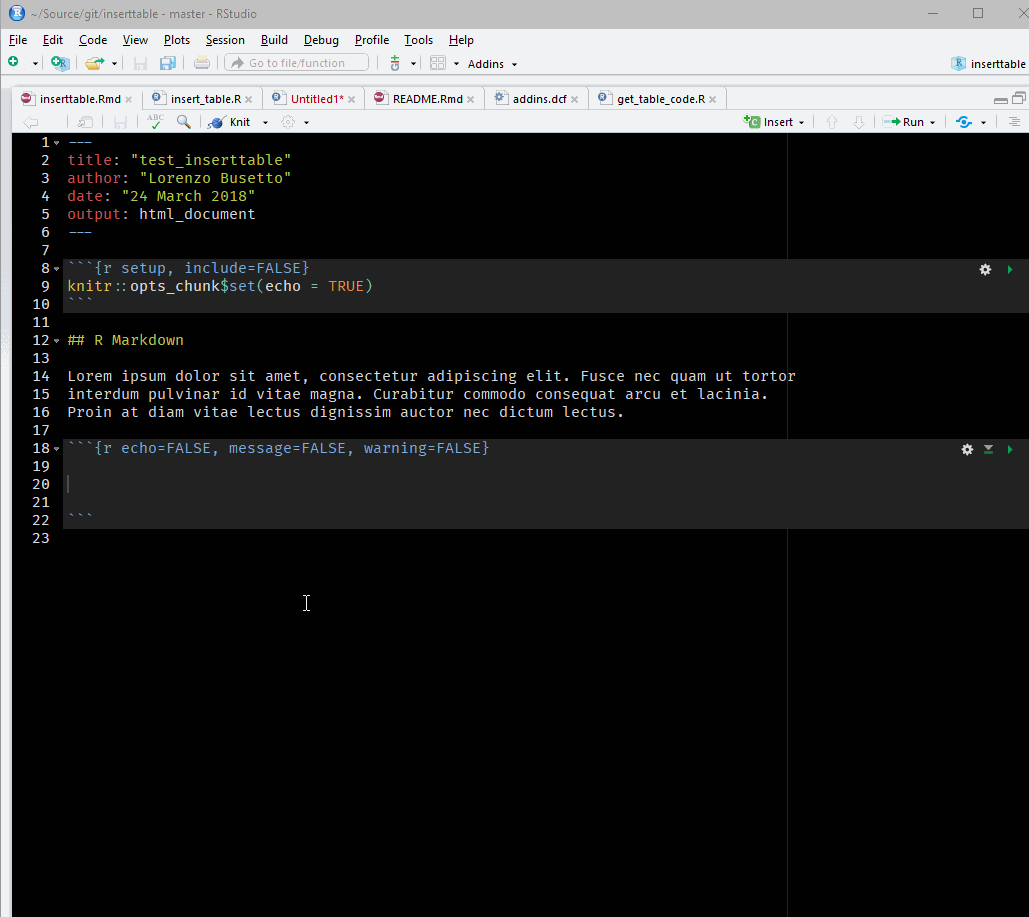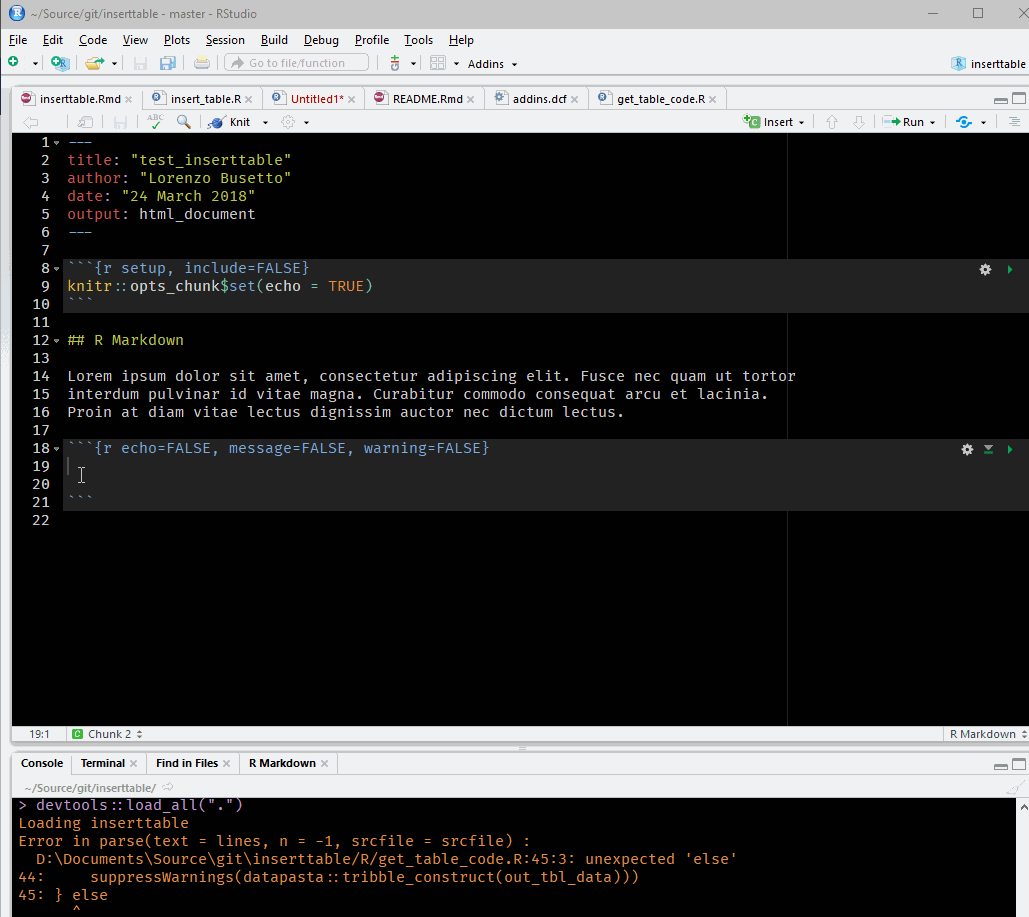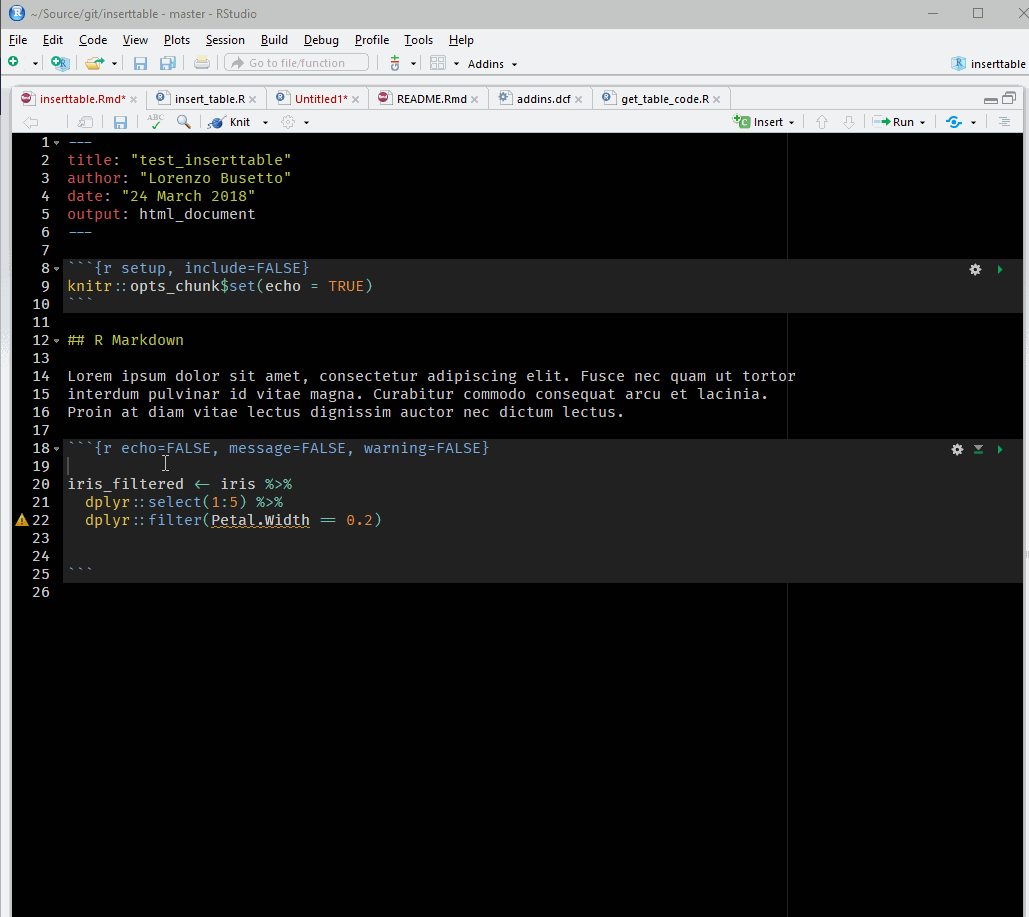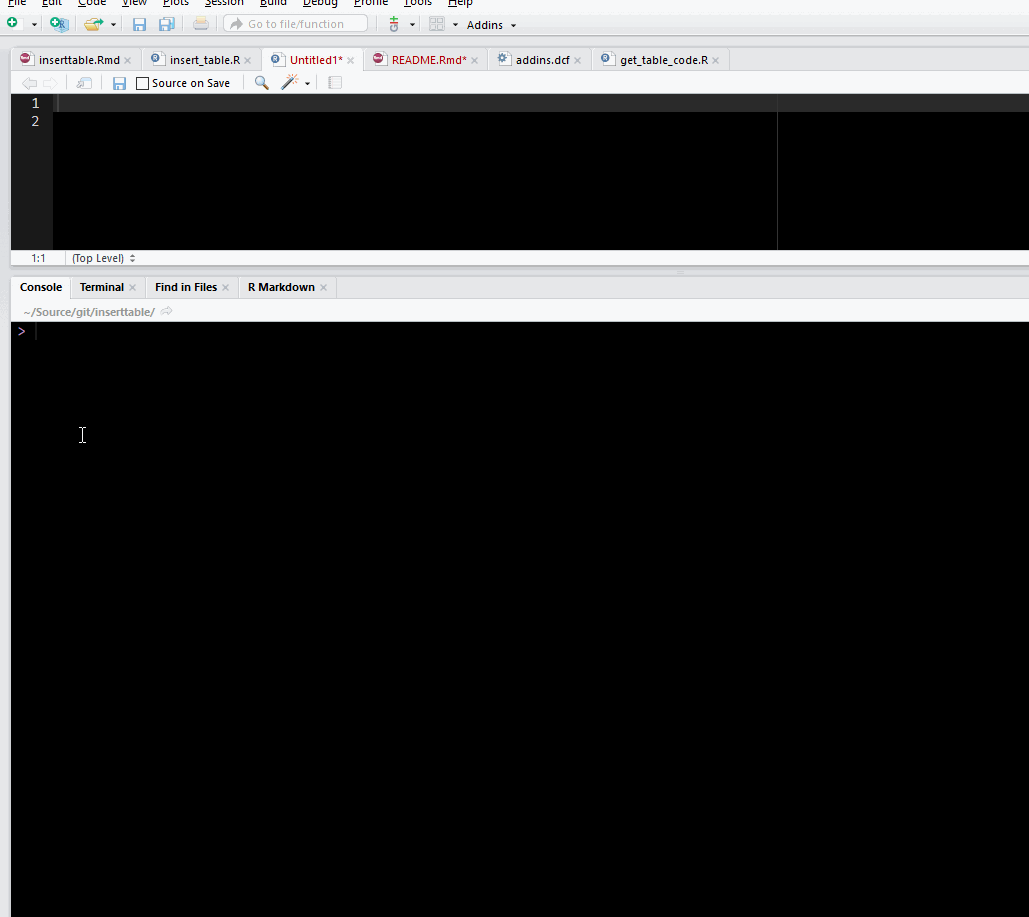In the last months, I started increasingly using Rmd documents for preparing scientific reports, blog posts, etcetera. While I really like the flexibility offered by the system, one thing that I thought could be improved is the support for easily inserting tables. So, “inspired” also by the recent addition of the excellent insert image addin in blogdown, I decided to give it a go and try to implement some kind of addin to facilitate table insertion in Rmd documents.
After struggling a bit due to my rather nonexistent shiny skills, in the end I managed to obtain a “basic but useful” (IMO) addin. Let’s see how it works:
Installation
You can install the addin from GitHub with:
# install.packages("devtools")
devtools::install_github("lbusett/insert_table")Usage
Upon installing, inserttable registers a new RStudio Addin (Insert Table)
that can be used to easily insert a table in a Rmd document. To use it, open a Rmd document and, with the cursor within a r chunk and select “Addins –> Insert Table”.
There are two main use modes:
Launch the addin while the cursor is on a empty line
In this case, a GUI will open allowing you to select the desired output format (
kableExtra, DT and rhandsontable are currently implemented), and to edit the content of the table. After clicking Done the Addin will add in the Rmd
document the code needed to generate the table in a nice tribble format (thanks to Miles McBain’s datapasta package!) to allow easier editing, and also the code needed to render it with the selected output format using some
default options, as can be seen below:

A useful feature is that, for larger tables, you can also cut and paste content from a spreadsheet :

Obviously, rendering of the table can be tweaked further by changing/adding arguments of the rendering functions in the automatically generated code.
Launch the addin while selecting the name of a variable
In this case, the GUI allows you to select only the desired output format (
it is assumed that the variable you select corresponds to a data frame or similar
object containing the data you wish to show as table). After clicking Done
the Addin will add in the Rmd document the code needed to render the selected variable as a table with the selected output format. The code will be added at the first empty line below that containing the name of the selected variable.

IMPORTANT NOTE: inserttable will make no effort to guarantee that the
variable you select is a data.frame. It is up to you to select a meaningful
variable!
Usage from the console
You can also use (part of) inserttable functionality from the console by calling
function insert_table().
> insert_table(tbl_name = "table_1", nrows = 4, ncols = 4, tbl_format = "DT")The function will return to the console the code needed to create a empty table of the specified dimensions and render it with the selected format:

####That’s all!.
I hope someone else will find this useful!